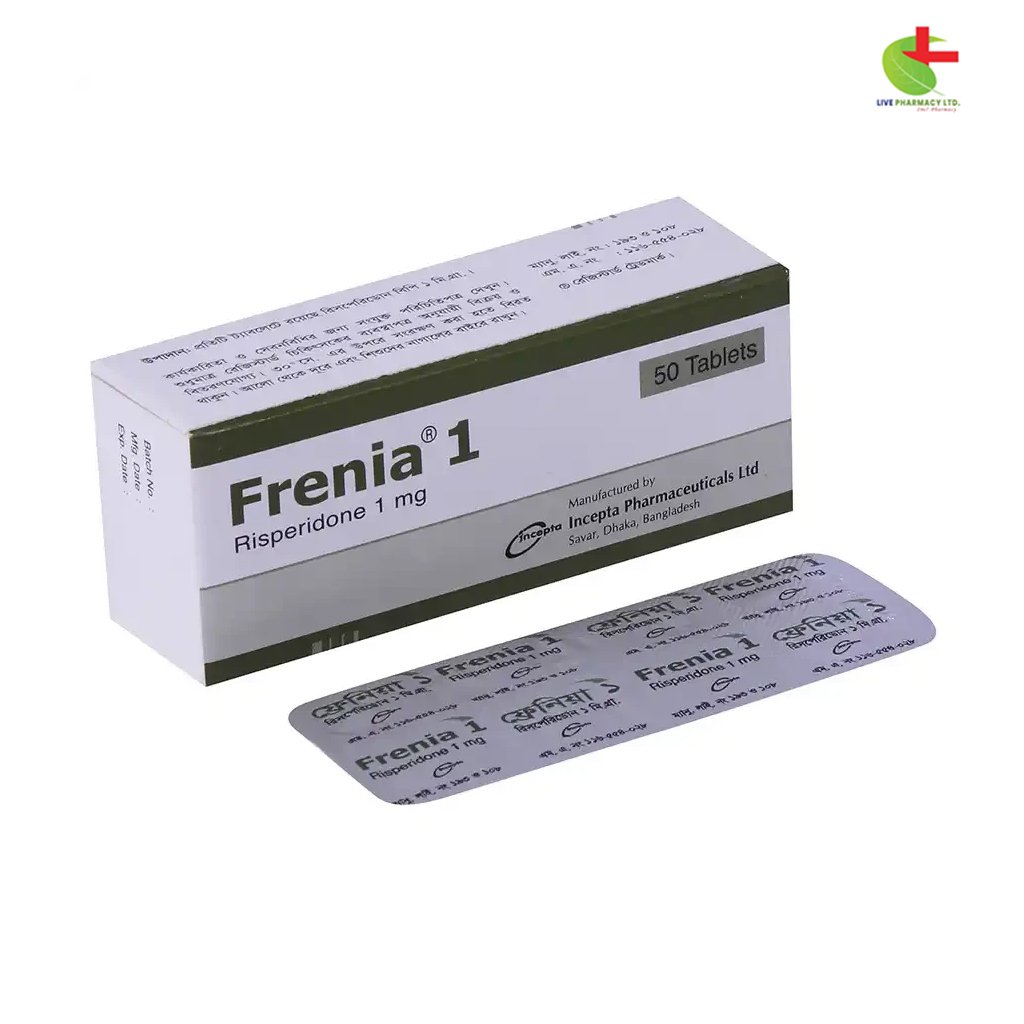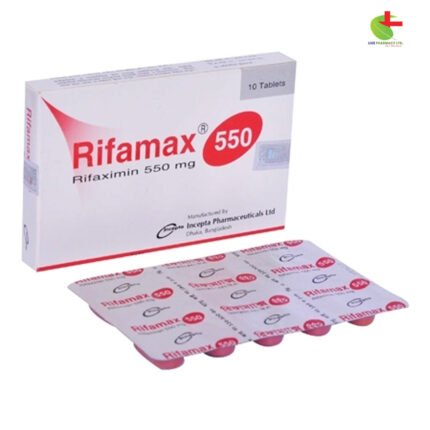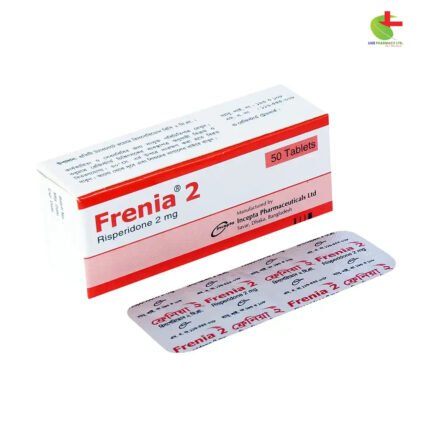Frenia 1
30.00৳ Strip
- Frenia Tablets are used to treat acute and chronic psychoses, manic episodes, and schizophrenia.
- Contains Risperidone, which helps balance serotonin and dopamine levels in the brain.
- Effectively alleviates symptoms such as delusions, hallucinations, and mood swings.
- Always follow the guidance of a healthcare professional for proper dosage and to manage potential side effects.
 Brand
Brand
|
Incepta Pharmaceuticals Ltd |
|---|---|
 Generics
Generics
|
Risperidone |
 Type
Type
|
Tablet |
Indications
Frenia Tablets are prescribed for the management of:
- Acute and chronic psychotic disorders
- Manic episodes
- Schizophrenia
Always follow the advice of a registered healthcare provider before using this medication.
Pharmacology
Risperidone, the active ingredient in Frenia, is a selective monoaminergic antagonist that primarily targets serotoninergic 5-HT2 and dopaminergic D2 receptors. Additionally, it interacts with alpha1 adrenergic receptors and, to a lesser extent, H1 histamine and alpha2 adrenergic receptors. Notably, Risperidone does not bind to cholinergic receptors.
As a potent D2 antagonist, Risperidone effectively alleviates positive symptoms of schizophrenia, such as delusions and hallucinations, with minimal impact on motor function. The balance between serotonin and dopamine antagonism helps reduce the likelihood of extrapyramidal side effects and enhances the therapeutic effects on the negative and affective symptoms of schizophrenia.
Dosage & Administration
For Psychoses:
- Initial Dose: 2 mg per day (divided into 1–2 doses) on the first day. Increase to 4 mg per day on the second day (slower titration may be required for some patients).
- Maintenance Dose: Typically 4–6 mg per day. For doses above 10 mg per day, the benefit must outweigh the risk (maximum daily dose: 16 mg).
- For Elderly or those with Renal/Hepatic Impairment: Start with 1 mg per day, divided into two doses, and gradually increase by 1–2 mg daily.
- For Children under 15: Not recommended.
For Mania:
- Initial Dose: 2 mg once daily, with gradual increments of 1 mg per day if needed.
- Usual Dose: 1–6 mg daily.
- For Elderly or those with Renal/Hepatic Impairment: Start with 1 mg daily, divided into two doses, and gradually increase as necessary.
For Schizophrenia:
- Initial Dose: Start with 1 mg twice daily (BID), increasing by 1 mg BID on the second and third days as tolerated. Target dose is typically 3 mg BID by day three.
- Adjustments: Further dosage changes, if needed, should be made no more frequently than every week, with increments or reductions of 1–2 mg.
Always consult a registered healthcare provider before starting or adjusting your medication.
Drug Interactions
- Levodopa & Dopamine Agonists: Frenia may reduce the effectiveness of these medications.
- Carbamazepine: Chronic use may decrease the plasma concentration of Frenia.
- Clozapine: Prolonged use may lower Frenia’s clearance rate.
- Antihypertensive Medications: Frenia may enhance their effects, potentially causing low blood pressure.
Contraindications
Frenia should not be used in patients who are known to be hypersensitive to Risperidone or any of the ingredients in the formulation.
Side Effects
Common side effects include:
- Insomnia
- Agitation
- Anxiety
- Headache
- Drowsiness (less frequent)
- Impaired concentration
- Fatigue
- Blurred vision
- Constipation, nausea, and vomiting
- Abdominal discomfort
- Hyperprolactinemia
- Urinary incontinence
- Tachycardia
- Edema
- Rash
- Rhinitis
- Rare: Cerebrovascular events, neutropenia, and thrombocytopenia.
Pregnancy & Lactation
- Pregnancy: Although animal studies show no direct reproductive toxicity, the safety of Risperidone during pregnancy has not been conclusively established in humans.
- Lactation: Risperidone and its metabolite (9-hydroxyrisperidone) are excreted in breast milk. Therefore, breastfeeding is not recommended during treatment with Frenia.
Precautions & Warnings
- Cardiovascular Issues: Use with caution in patients with pre-existing heart conditions.
- Tardive Dyskinesia: Discontinue use if signs of tardive dyskinesia appear.
- Renal or Hepatic Impairment: Adjust the dose accordingly and monitor closely.
- Elderly & Epilepsy: Caution is advised in older patients and those with a history of seizures.
- Pregnancy: Not recommended unless clearly necessary.
Therapeutic Class
Atypical antipsychotic medication.
Storage Instructions
- Store below 30°C.
- Keep away from direct sunlight and out of the reach of children.













Reviews
There are no reviews yet.